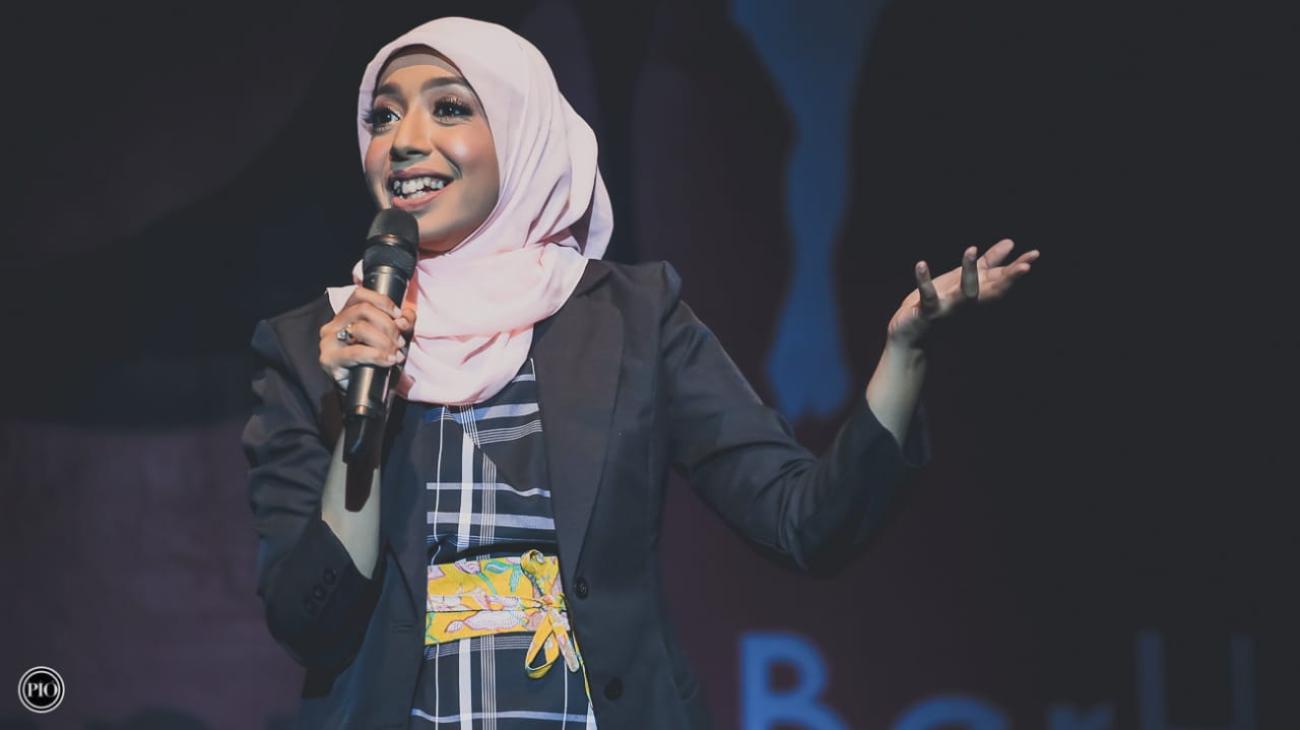On 11 December 2021, the United Nations in Indonesia hosted its inaugural Comedy for Equality showcase, featuring performances from 10 Indonesian comics mentored by the multi-award-winning Indonesian comedian Sakdiyah Ma’ruf.
Ma'ruf helped each aspiring comedian craft routines that reflected humorously on gender inequalities, misogynistic stereotypes, and the global 16 Days of Activism Against Gender-Based Violence initiative. The 90-minute showcase was live-streamed on Indonesian media house Kumparan’s Youtube channel.
“Gender-based violence can be an uncomfortable, painful topic to discuss. But addressing it effectively means being able to have honest conversations,” says UN Resident Coordinator for Indonesia Valerie Julliand. “Our Comedy for Equality project challenges taboos and makes conversations about this most serious of subjects a bit less scary.”
Like in many other countries, Indonesia has witnessed a tragic rise in violence against women and girls during the COVID-19 pandemic, corresponding with nationally enforced restrictions on movement. Research by UNWomen shows that the COVID-19 pandemic affected women and men in Indonesia differently. Having faced existing vulnerabilities even before the pandemic, women have now faced increased risks of discrimination and gender-based violence.
UN Women and UNFPA Indonesia opened applications for Comedy for Equality on 30 October 2021. The brief asked comics interested in gender equality to submit a short video clip or script of an original joke they had devised.
Of more than 40 applicants, the panel selected 20 comedians to participate in five workshops Ma’ruf hosted through November and December. The workshop also featured Devi Asmarani, the co-founder and editor in chief of the feminist web magazine Magdalene, and Inaya Wahid, a social and cultural activist as special guests. Following a graduation show on 6 December, the UN in Indonesia selected 10 comedians to perform at the 11 December showcase.
“Stand-up comedy is an art form that allows us to share our most personal stories and tackle sensitive issues, including gender-based violence and inequality,'' says Ma’ruf. “Personally, stand-up comedy allowed me to survive hardships and trauma and rewrite the story in a way that uplifts and empowers.”
Throughout her storied career, Ma’ruf has consistently challenged stereotypes and resisted pressure to censor herself. She has won international renown as a powerful voice for women’s rights.
In 2015, Ma’ruf was awarded the Václav Havel Prize for Creative Dissent at the Oslo Freedom Forum. In 2018, she made the BBC’s 100 Women List, with the UK state broadcaster citing Ma’ruf’s deft use of comedy “as a way to challenge Islamic extremism and violence against women.”
Mar’uf says that in addition to countering narratives that discriminate against women, the Comedy for Equality initiative helps “women and men to reflect their stories of discrimination and marginalization and provides safe spaces for women and men to express themselves.”
She adds that the platform gives “more opportunity to women and men to speak up by cutting industry gatekeepers that censor people and prevent them sharing their truth.”


